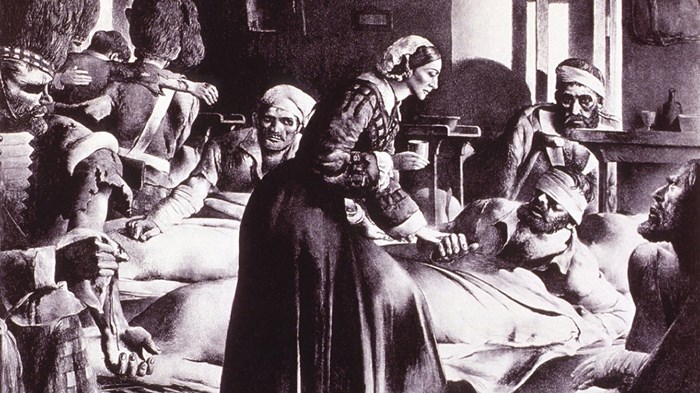Florence Nightingale is a name that is synonymous with nursing and healthcare. Born on May 12, 1820, in Florence, Italy, Florence Nightingale was a trailblazer in her field. She is considered the founder of modern nursing and her contributions to the field have made her an inspiration to many.
Florence Nightingale exhibited remarkable intelligence as a child. Her father recognized her potential and took a special interest in her education, introducing her to subjects such as history, philosophy, and literature. She excelled in languages and mathematics, mastering French, German, Italian, Greek, and Latin at an early age. Rather than conforming to traditional female expectations of domestic duties, she preferred to engage in intellectual discussions on politics and society with her father and read the works of great philosophers.
Florence came from a Christian family, and her faith provided her with great solace and comfort. At the age of 16, she believed God called her to a purpose of alleviating human suffering, and nursing was the ideal way to serve both God and humanity.
At a time when nursing was not considered a profession, Florence Nightingale made it her life's mission to change that. Her work during the Crimean War is legendary. She was instrumental in setting up field hospitals and improving sanitation in military hospitals. She spent countless hours tending to wounded soldiers and providing them with the care and compassion they needed to recover.
But Florence Nightingale's work did not stop there. She went on to create the first professional school of nursing in the world, the Nightingale Training School for Nurses, which is now part of King's College London. She believed that nurses should receive the same level of education and training as doctors, and she worked tirelessly to make that a reality.
Florence Nightingale exhibited remarkable intelligence as a child. Her father recognized her potential and took a special interest in her education, introducing her to subjects such as history, philosophy, and literature. She excelled in languages and mathematics, mastering French, German, Italian, Greek, and Latin at an early age. Rather than conforming to traditional female expectations of domestic duties, she preferred to engage in intellectual discussions on politics and society with her father and read the works of great philosophers.
Florence Nightingale's legacy is not just about her work in nursing and healthcare, but also about her leadership and advocacy. She was a strong voice for social justice and equality, and she used her position to advocate for the rights of women and marginalized groups.

Today, Florence Nightingale is still an inspiration to many, not just in the field of nursing, but in all aspects of life. Her dedication to her work, her leadership, and her advocacy serve as a reminder that one person can make a difference.
As we celebrate International Nurses Day on May 12th, we honor the legacy of Florence Nightingale and all the nurses who have followed in her footsteps. They continue to provide care and compassion to those in need, and they serve as a shining example of what it means to be a true hero.
So, let us all take a moment to reflect on the life and work of Florence Nightingale, and let her inspire us to make a positive impact in our own lives and in the lives of others. Let us strive to be like her, to be leaders, advocates, and caregivers, and to make the world a better place for all.


